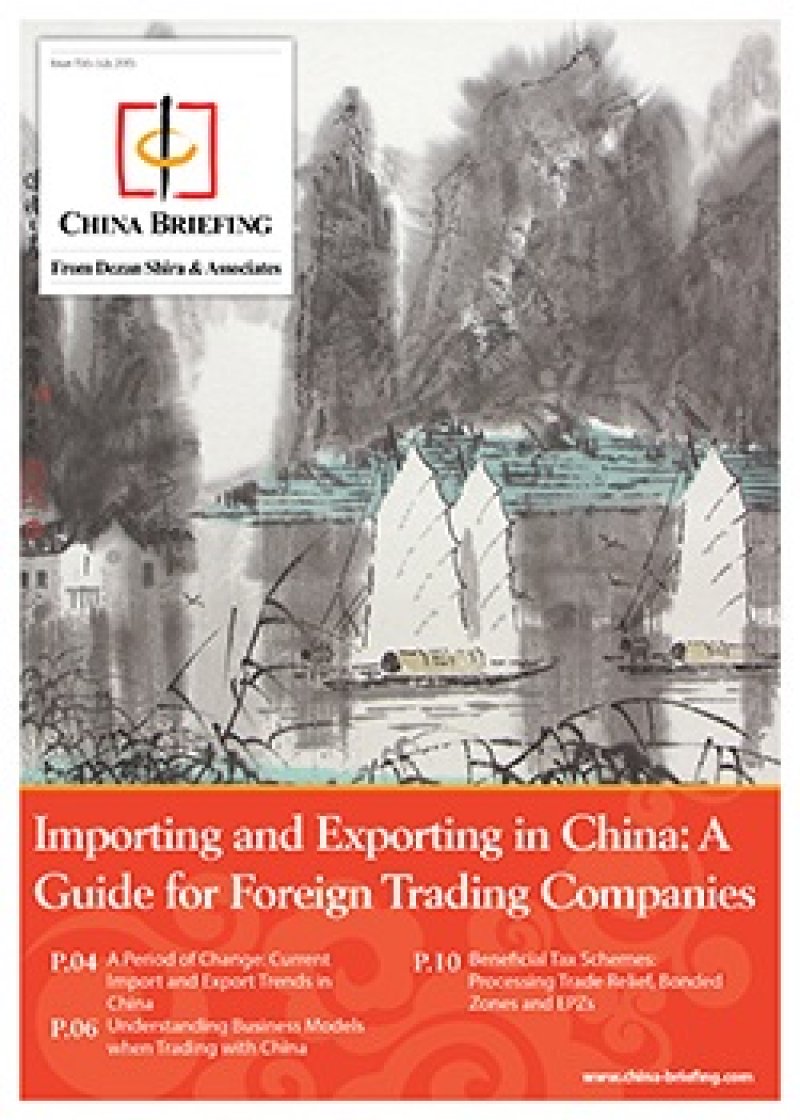Hong Kong and China Sign Trade in Services Agreement
By Dezan Shira & Associates
Editor: Jake Liddle
On November 27, an agreement on trade in services under the Mainland and Hong Kong Closer Economic Partnership Arrangement (CEPA) was signed and will take effect from June 1, 2016. The aim of the agreement is to ease the trade of services between the two regions, removing existing restricting measures which hinder market access.
The CEPA was established in 2003, with clauses on the trade of services stating that Hong Kong service providers (which in most cases possess competitive advantages) are to enjoy preferential treatment when setting up enterprises in the Mainland’s fast expanding services sector. Such incentives include allowing the establishment of wholly owned enterprises, reducing registered capital requirements and relaxing restrictions on equity shareholding and geographical location or business scope. Ultimately, this agreement facilitates preferential market access to Hong Kong service providers.
This latest supplement – a standalone subsidiary agreement made under the trade of services section in the CEPA framework – adds a further 28 liberalization measures to the Arrangement, opening 153 Mainland sectors up to Hong Kong and giving the SAR “most favored treatment” status.
Previous pilot liberalization measures implemented in Guangdong province have been extended and now apply nationally, and there has been a reduction of the restrictive measures included in the negative list. In addition, if the Mainland accords to other economies the same liberalization measures, Hong Kong service providers will automatically enjoy further preferential treatment not included in the CEPA.
![]() RELATED: Business Advisory Services from Dezan Shira & Associates
RELATED: Business Advisory Services from Dezan Shira & Associates
Hong Kong’s Services Sector
Hong Kong’s services sector has seen rapid expansion during the last decade. It has now become one of the most advanced in East Asia, generating nearly 93 percent of Hong Kong’s GDP in 2013.
The four main pillar industries of trading and logistics, financial services, professional and producer services, and tourism are the primary driving forces of the services sector. The Hong Kong government has also identified and promoted six industries, namely the cultural and creative industries, medical services, education services, environmental industries, innovation and technology and testing and certification services, in which to diversify the local industry structure previously dominated by the ‘four pillars’.
China’s Services Sector
China’s services sector is not as developed when compared to Hong Kong. However, along with rising incomes, China’s services sector has grown steadily over recent years. In 2013, growth outpaced that of the manufacturing sector and is set to make further developments in the coming years. Efforts have been made to transition from ‘made in China’ to ‘created in China’, with the central government encouraging service enterprises with an array of incentives while simultaneously retracting similar incentives from the manufacturing sector.
This latest services agreement will enable greater interaction between the two regions, consolidating the existing CEPA pact. The introduction of Hong Kong enterprises into the Mainland will undoubtedly bring about greater specialization in the services sector, thus making the sector increasingly competitive.
|
Asia Briefing Ltd. is a subsidiary of Dezan Shira & Associates. Dezan Shira is a specialist foreign direct investment practice, providing corporate establishment, business advisory, tax advisory and compliance, accounting, payroll, due diligence and financial review services to multinationals investing in China, Hong Kong, India, Vietnam, Singapore and the rest of ASEAN. For further information, please email china@dezshira.com or visit www.dezshira.com. Stay up to date with the latest business and investment trends in Asia by subscribing to our complimentary update service featuring news, commentary and regulatory insight. |
![]()
Using China’s Free Trade & Double Tax Agreements
In this issue of China Briefing, we examine the role of Free Trade Agreements and the various regional blocs that China is either a member of or considering becoming so, as well as how these can be of significance to your China business. We also examine the role of Double Tax Treaties, provide a list of active agreements, and explain how to obtain the tax minimization benefits on offer.
 Double Taxation Avoidance in China: A Business Intelligence Primer
Double Taxation Avoidance in China: A Business Intelligence Primer
In our twenty-two years of experience in facilitating foreign investment into Asia, Dezan Shira & Associates has witnessed first-hand the development of China’s double taxation avoidance mechanism and established an extensive library of resources for helping foreign investors obtain DTA benefits. In this issue of China Briefing Magazine, we are proud to present the distillation of this knowledge in the form of a business intelligence primer to DTAs in China.
Importing and Exporting in China: a Guide for Trading Companies
In this issue of China Briefing, we discuss the latest import and export trends in China, and analyze the ways in which a foreign company in China can properly prepare for the import/export process. With import taxes and duties adding a significant cost burden, we explain how this system works in China, and highlight some of the tax incentives that the Chinese government has put in place to help stimulate trade.
- Previous Article Taiwans ambitionierte Umweltziele
- Next Article China Market Watch: China’s Commercial Healthcare Insurance Industry and Import/Export Business















